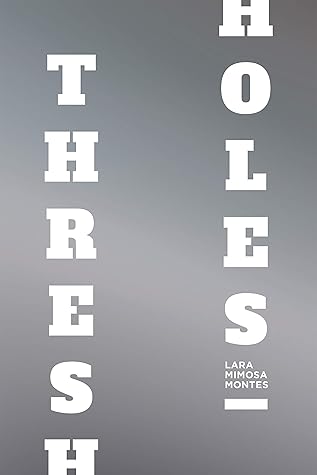Kindle Notes & Highlights
And when people would ask, “What are you writing?” I would return in response, “It’s more like the book is writing me.”
But to recall Cecilia Vicuña, “A poem only becomes poetry when its structure / is made not of words but forces.”
Upon revisiting what I had written once, weeks after the fact, I thought in earnest: Sylvia Plath ain’t got shit on me.
Daily, I remind myself: the future is not dependent on your inability to describe your undoing.
He was the same R. who continued to seek me out even as I acted towards him somewhat distant and uncertain.
Why did I feel inside the wreckage that even if I was with you I was also so alone?
How a violation can sever the soul from the body and make ruin where there was once a sense of belief, beauty.
YOU CAN LIVE LONG IT ISN’T PREDETERMINED (Hannah Weiner)
What if the only face of desire I recognize is loss?
Not only had I happened, but I was likely never to happen again.
How would “I” change if I allowed myself to turn towards the pain, rather than live in constant aversion of it? What followed felt like the fulfillment of some necessary spiritual obligation; by doing the work, I am learning that in order to live, I have to learn how to transition from one state to the next—how to become nerve gas, hemotoxin, and snake again.
What if this is garbage (but, also, what if it isn’t)?
And in the moments between moments when I wedge myself between two opposing rock faces, I ask myself, “Is this us?” Is this narrative? Is this writing? Tell me: Is this love.
It is the body that must transform itself into writing. (Michel de Certeau)
I followed you into the nothing, like a wave, and then was
There isn’t a day I don’t ask myself, “Is this the day I want to go to that place,” the wreckage I call home
In the context of the film, that wildness, which typically expresses itself as a gendered inability to manage the exhilarating manic highs and lows of it all, is what gives Nomi her edge; why bother keeping it together? It’s fucking Las Vegas; you either go there to win or not at all. But I was nowhere near Las Vegas. I was thirty-five hundred feet above sea level.
We also speculate about perception, how we discover a person, their mannerisms, and come to know what governs them.
The open suitcase—is it a coffin or a boat?
Real freedom, as an act of perception, has no form. (Clarice Lispector)
The time of the sentence and the time after
When I’m writing, opposite me, there are always at least two people: somebody (an abstraction) sitting next to your ghost.
Write the form you wish to touch then tend to it with rosin
You want to wave but it’s not a gesture that makes sense.
want to stop carrying the burdens that least define us.
swerved into the agrammatical (and then had sex)
How can one speak of the present when one feels abandoned by it?
A paragraph is a time and place, not a syntactic unit. (Lyn Hejinian)
When does one acquire a language? Is it through repetition, bombardment, or experience? Whether or not introduces a condition and its opposite.
When I think of the Bronx, I think of language coming apart, always before me, threshing; Undone.
Deconstructing the present is and is not an addiction.
We don’t have to come back. We don’t have to know who we are.
I wanted to know what other people knew, and I really felt at age twenty-three, the same age that Clarice Lispector was when she started writing her second novel, The Chandelier, that I knew nothing. How to cut up a whole chicken, where to buy earplugs. The city in which my mother was born. Nothing.
to live in the time of the characters rather than the time of the world—
Seeing without knowing
The practice of being in pleasure is a political practice. When we allow ourselves to embrace pleasure by resisting conventional ideals of beauty, form, mastery, and intellect, we are also making room for something “instinctual, intuitive, improvisatorial,” to use luciana’s words. Something connected.


